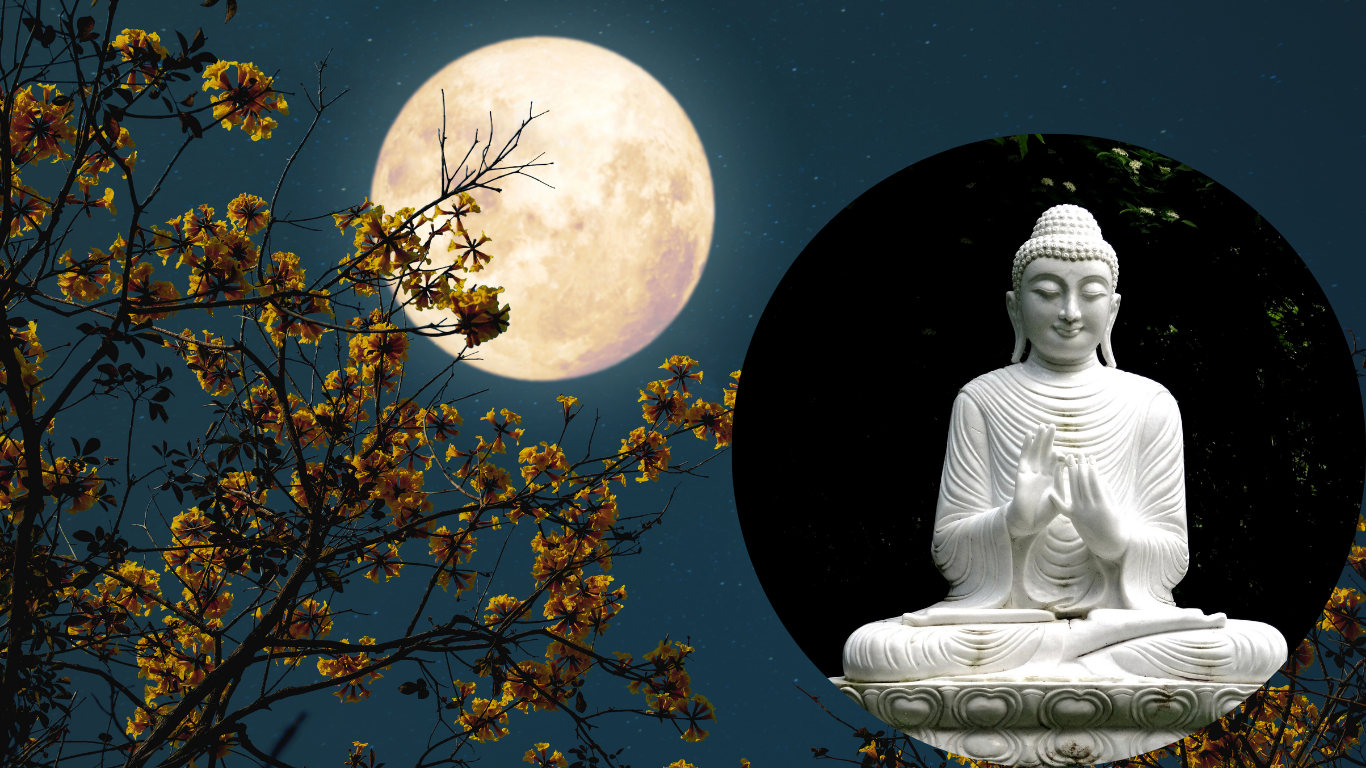In Buddhism, the Full Moon Day, or Uposatha, holds a place of great significance, serving as a time for reflection, spiritual renewal, and community gathering. Observed since the Buddha’s time, the Uposatha is a day dedicated to “the cleansing of the defiled mind,” aiming to foster inner calm and joy. On these days, both lay followers and ordained members of the Sangha intensify their practice, deepen their understanding of the Dhamma, and reaffirm their commitment to the path of spiritual growth.
Full Moon Days are marked by various practices, including meditation, chanting, and listening to Dhamma talks. Lay practitioners often observe the Eight Precepts, while monks and nuns recite the Patimokkha, the monastic code of conduct. The observance of Uposatha days offers a structured opportunity for practitioners to engage in mindful reflection, ethical conduct, and the cultivation of wisdom and compassion, serving as a reminder of the Buddha’s teachings and the shared journey towards enlightenment.

